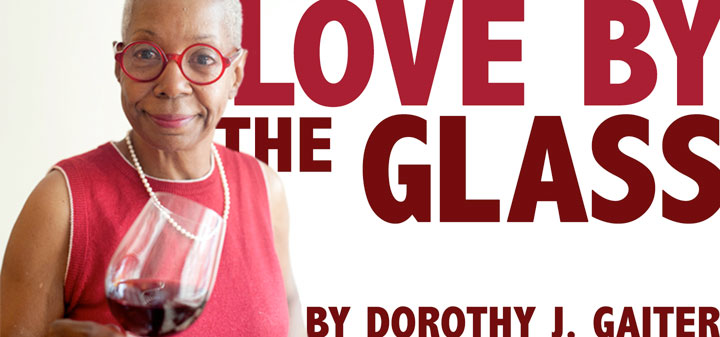
The observance of Rosh Hashanah, the Jewish New Year, begins at sunset next Wednesday, the 24th. We don’t keep kosher, but you don’t have to be Jewish to enjoy kosher wines, and you also don’t have to wait for a holiday to drink them.
However, if you’ve never had a kosher wine or you’re celebrating Rosh Hashanah and want to serve a kosher wine or take one to a friend’s home, the 2013 Tishbi Chenin Blanc is a charming place to start. Tishbi Estate Winery is located in Zichron Yaakov, a wine region in the Haifa District, at the southern end of the Carmel mountain range(as in Carmel Winery), and overlooks the Mediterranean Sea.
The story of Tishbi Estate Winery is filled with interesting history. As with many things vinous in Israel, it starts with Baron Edmond James de Rothschild, of the French banking branch of that large and prosperous family. Rothschild founded Zichron Yaakov in 1882 and it was one of the first Jewish settlements in what would become Israel. He named it after his father, James Mayer de Rothschild (Jakob Mayer Rothschild). Among the first settlers in the region that year were Michael and Malka Chamiletzki, who emigrated from Lithuania and settled in nearby Shefeya.
At the Baron’s behest, according to Tishbi Estate Winery, Michael planted vineyards there. That same year, the Baron helped found Carmel Winery in Samaria or Shomron, with a bottling plant in Zichron Yaakov. The early settlers had turned to him for assistance in developing their vineyards because his family owned Château Lafite Rothschild, the first growth, and he was a generous supporter of a Jewish homeland. He was such an important figure in the region that after he died in 1935, his and his wife’s remains were buried in Paris and then in 1954 interred after a state funeral in a cemetery near Zichron Yaakov.
Meanwhile, the Chamiletzkis’ vineyards flourished, with their grapes going to Carmel Mizrahi, a winemaking cooperative founded in 1902. In 1925, they had a famous visitor, the poet Chaim Nachman Bialik, who that same year gave the address for the opening of Hebrew University in Jerusalem. (During his lifetime, he was such a celebrated figure that he was considered the country’s national poet.) According to the winery, “in honor of their warm hospitality, the poet proposed a new, Hebrew family name: ‘Tishbi’ – an acronym standing for ‘ resident of Shefeya in Israel.’” Gee. I’m not sure how I would feel about that, but they clearly liked the idea.
Today, generations later, the winery is led by Jonathan Tishbi, who decided to leave the cooperative and form his own winery in 1984. The first name for his new family enterprise was Baron Wine Cellars, but later he changed it to Tishbi Estate Winey. And flourish it did. Now, Jonathan’s son Golan is the winemaker and helps his dad, and there’s a visitor center and wine shop where they sell their wide variety of wines, a distillery that makes brandy, a restaurant and a line of gourmet foods created by daughter Oshra. Other family members are also involved.
So you’re probably wondering what makes a wine kosher. The word, by the way, means “fit.” It starts with special attention to cleanliness and supervision by observant Jews. And no animal byproducts, like gelatin for clarifying the wine, are used. To see the important rules, check out the website of the Abarbanel Wine Co. at kosher-wine.com. Click on “Kashrut” and then on “history, background and information.”
The Tishbi Chenin Blanc is a type of kosher wine that’s called mevushal, which means it can be handled by the general public, such as a non-Jewish waiter, and still remain kosher once it’s opened. While it’s being made, a mevushal wine is heated in seconds by flash pasteurization, which we have found does not affect the taste of the wine. In fact, over the years, we have not noted a consistent difference in taste between mevushal and nonmevushal kosher wines. Often the labels of kosher wines will have an “O” with a “U” inside with a “P” near it, the stamp of approval of the largest agency that certifies kosher products. Its existence on a label means that the wine is kosher for Passover.
About the Tishbi Chenin Blanc, we wrote in our notes, “Yummy. Juicy, pears and peaches, a fruit bowl with great acidity. Ripe, well-developed fruit.”
This dry yet intensely fruity wine would grace any table.
Dorothy J. Gaiter conceived and wrote The Wall Street Journal's wine column, "Tastings," from 1998 to 2010 with her husband, John Brecher. She has been tasting and studying wine since 1973. She has had a distinguished career in journalism as a reporter, editor, columnist, and editorial writer at The Miami Herald and The New York Times, as well as at The Journal.










